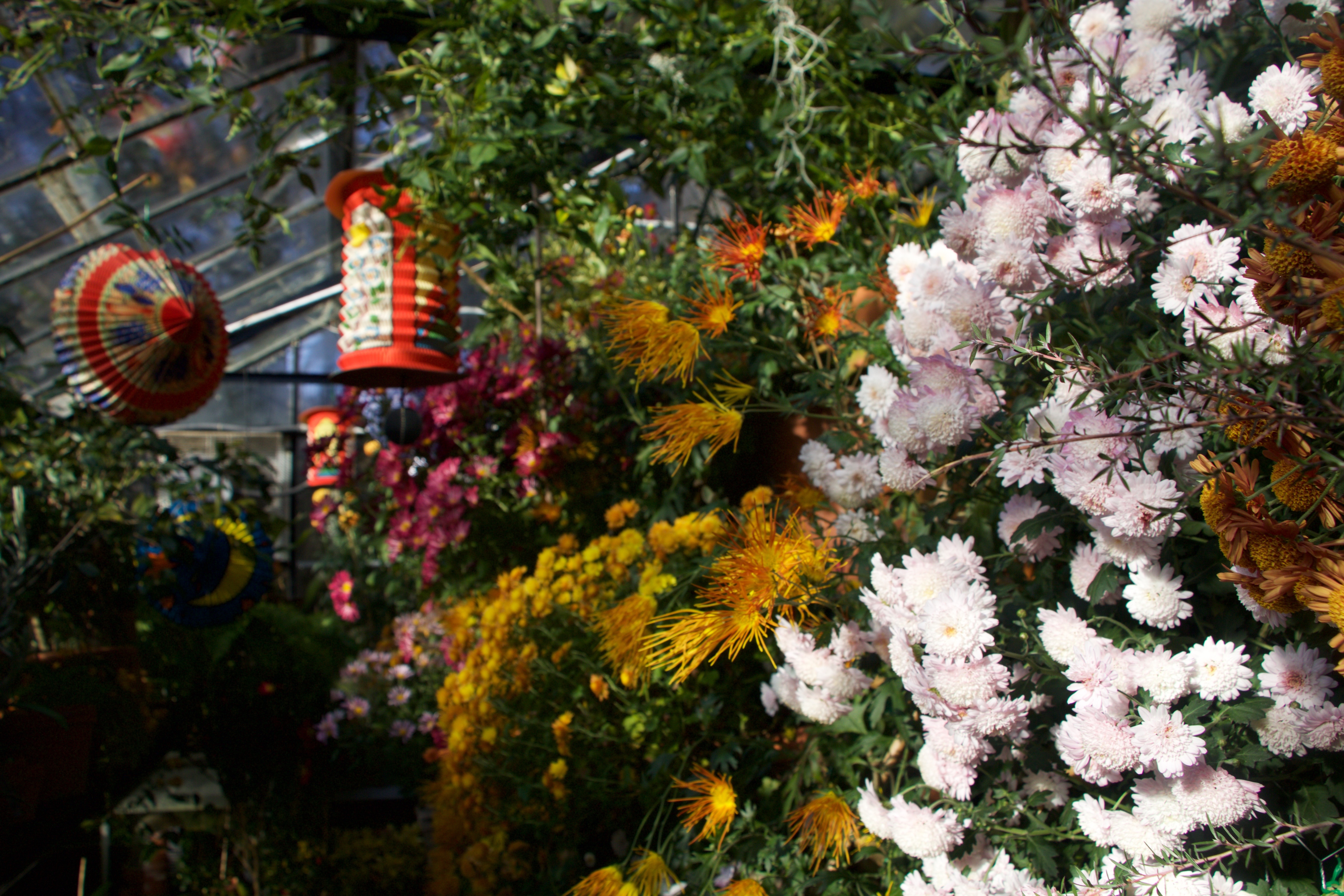 Humans have been celebrating 'harvest' time and its many interpretations across nearly every culture and for centuries. So while it is hardly a new concept, it's safe to say that its meaning today has been diluted somewhat. While as gardeners, we see some years when it seems like the harvest never ends, it's beginning to feel that way too at retail, or at least, once August begins.
Humans have been celebrating 'harvest' time and its many interpretations across nearly every culture and for centuries. So while it is hardly a new concept, it's safe to say that its meaning today has been diluted somewhat. While as gardeners, we see some years when it seems like the harvest never ends, it's beginning to feel that way too at retail, or at least, once August begins.
When asked, most people today associate ‘harvest time' as more of a holiday, even an entire season, than anything specific. After all, in our modern world, it's hard to be specific about anything, especially when it was essentially an ancient time of ritual and thanks, often involving the sacrifice of a virgin or something. Odder events have turned into retail holidays, but when it comes to harvest celebrations, at least we still have a bit of the basic meaning at hand. I mean, pumpkin spice and apple cinnamon cider to begin with. Big business can't help themselves as it’s essentially a free licensing program to exploit with a predetermined color palette and little to no religion (aside from some pagan connections) to muddle it all up.
The best part is that what was once labor-intensive work and thanks, with the bonus of possibly surviving through the long New England winter, has now somehow become a season of enjoyable leisure time activities. We love things like supply wine around a fire pit, or dining on comfort foods. The season abounds with family activities like apple picking and hayrides—no more bringing in the sheaves or slaughtering the herd for us. We're far more sophisticated than that.
We've learned to embrace only the pretty or tasty parts of 'harvest time.' In many ways, it's become just like any other major holiday—a time of nostalgia, ritual, and memories with lots of good food and plenty of Oktoberfest drinking to round it out. It's far more casual too as there are no specific dinner rituals, gifts or greeting cards to buy. What we do have is memories, and plenty of them. Most revolve around doing something together, often involving an outdoor activity or food. Even the weather is more comfortable. It doesn't get better than that.
While it's hard to escape the magazines featuring rich 'Harvest Comfort Foods,' the new 'Harvest Love' films on the Hallmark Channel, and all of the craft beer and sausage, we are probably hard-wired to enjoy autumn and the harvest period—regardless of our agricultural heritage. But we gardeners are at an advantage though—we know that the harvest is still happening, even though on a much smaller scale usually in our backyards.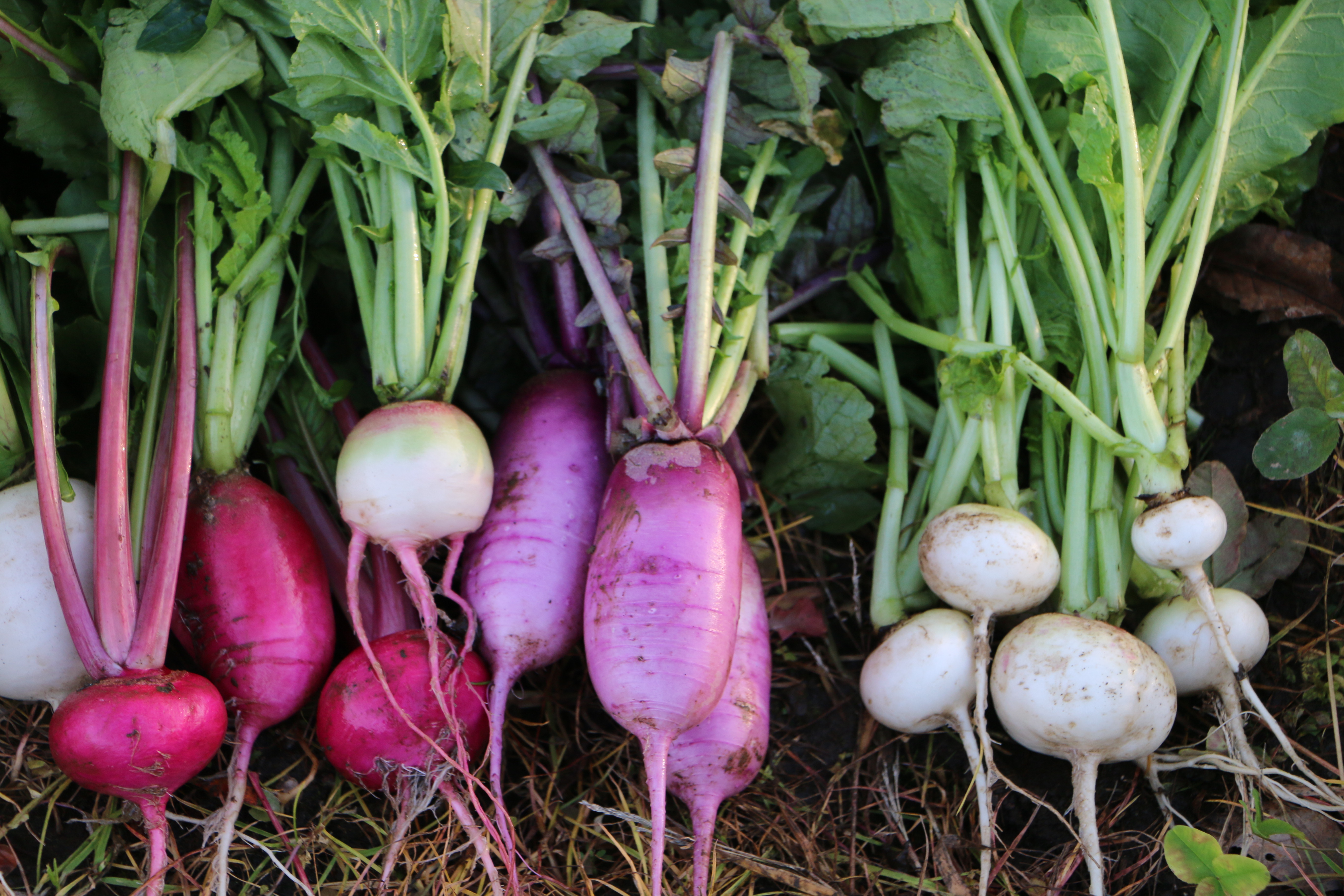
It might be a basket of wild mushrooms, a harvest of the last tomatoes from the garden or just a few cute cucamelons or freshly dug fingerling potatoes, but the harvest for us is very real and often one of the most enjoyable aspects of keeping a garden. In fact, some of us start planning it as soon as New Year's Day, making lists of the heirloom tomato seeds we want to order or picking out the nicest cosmos, dahlias or sweet peas to order early before they sell out.
While some may think that we gardeners are an odd lot, every autumn we are relentless—rushing home from work on the first cold evening of threatening frost to rescue every last green tomato and bring it indoors. We are that sort of lot. Squash to us is not just a mush Thanksgiving veg but something to truly marvel at. Their vintage colors, their history, it’s as if they are living relics (many are). They happen to be delicious as well. Not just something for the Thanksgiving table or from a can—we know the secret, and we aren't afraid to invest in it. The same goes for how we appreciate cracking open pods of dry beans or the joy that comes from digging up a row of fingerling potatoes. 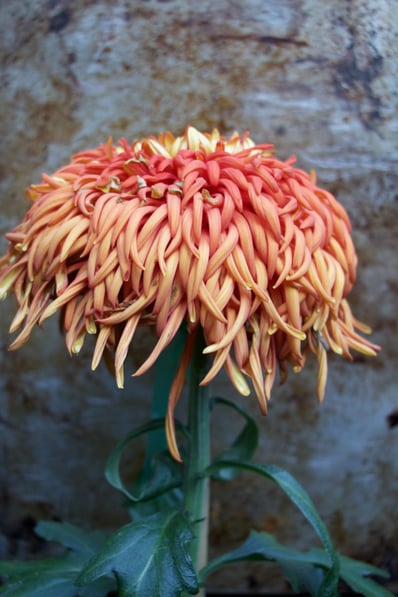 We gardeners not only know of the many tangible gifts that the earth can bring us at harvest time, but we embrace it annually, creating new rituals and customs with our families and ourselves. Staying grounded helps as well, as we know that it’s not anything close to the fantasy of ‘living off the grid.’ Oh no, it's not about that at all. Our gardening is kept in scale, focused on what is worth investing all of that time into. The reward has to be worth it—otherwise, why bother? We know that we can buy nearly any crop today if needed, but we also know and can appreciate a particular variety that might never show up at a farmers market. Today, cultivating a special variety through to harvest is perhaps the greatest luxury of all. It's about the experience, albeit an edited one. A few home-raised Honey Nut squash are as valuable to us as the finest truffles or choicest steak. It's a secret few of us share with others.
We gardeners not only know of the many tangible gifts that the earth can bring us at harvest time, but we embrace it annually, creating new rituals and customs with our families and ourselves. Staying grounded helps as well, as we know that it’s not anything close to the fantasy of ‘living off the grid.’ Oh no, it's not about that at all. Our gardening is kept in scale, focused on what is worth investing all of that time into. The reward has to be worth it—otherwise, why bother? We know that we can buy nearly any crop today if needed, but we also know and can appreciate a particular variety that might never show up at a farmers market. Today, cultivating a special variety through to harvest is perhaps the greatest luxury of all. It's about the experience, albeit an edited one. A few home-raised Honey Nut squash are as valuable to us as the finest truffles or choicest steak. It's a secret few of us share with others.
So while many might wish to purchase their harvest experiences at farm stands and orchards, we gardeners are more likely to curate and craft our involvement, factoring in another level of experience. Our heirloom veggies, cut-flower sunflowers, or Japanese chrysanthemums add to the season's riches. It all becomes more meaningful without a personal take on 'harvest time.' And while few will ever consider my pots of gentians, my fall blooming cyclamen or my heirloom black radishes anything close to icon status, to me they are priceless and are my triumphs of autumn in the garden.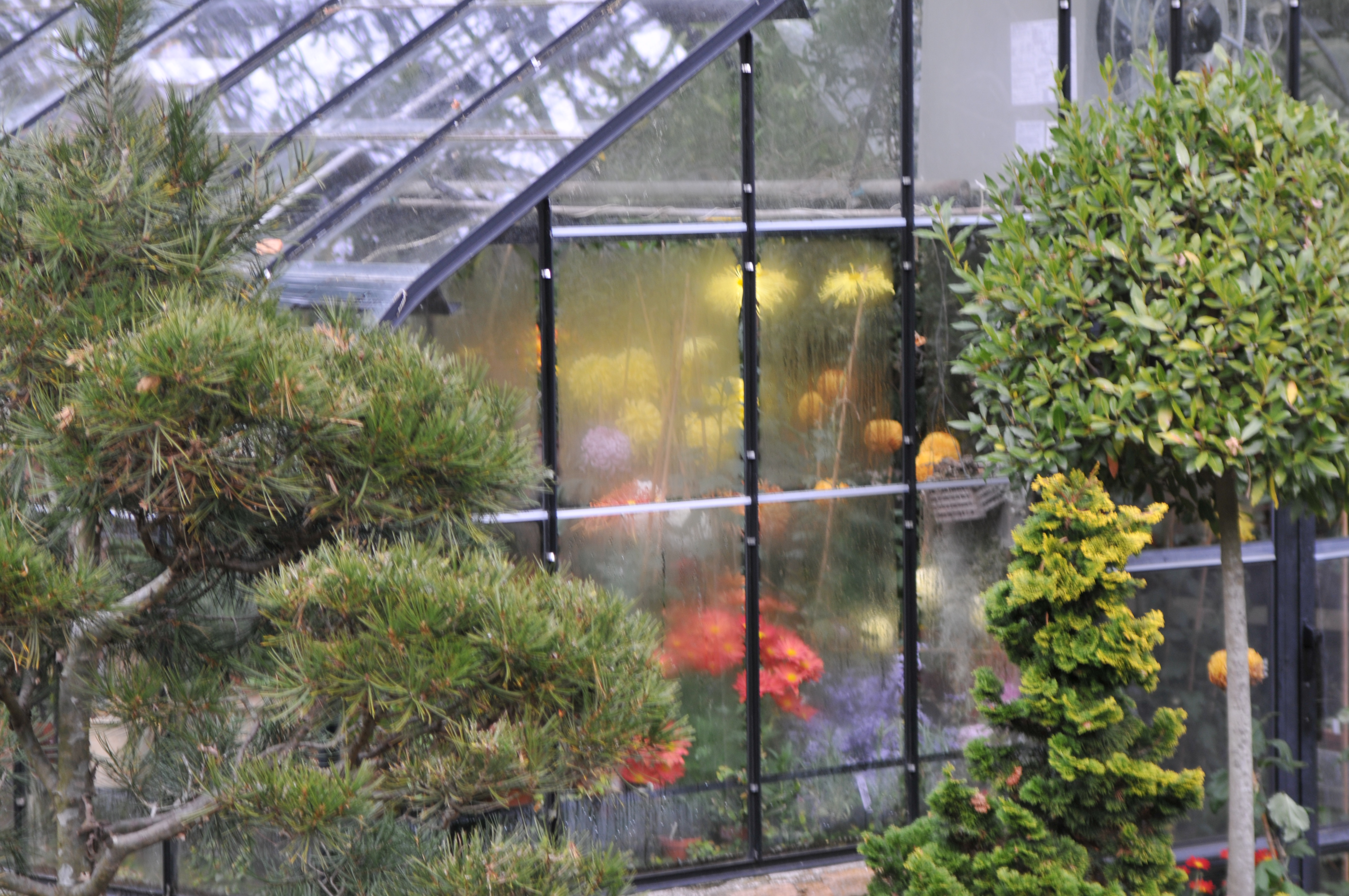
As for the rest of harvest time and what it brings us, we shouldn't forget the intangibles as well. Those adjacencies that happen to come with our hard labor out in the autumn garden. We shouldn't forget that we harvest so much more than just gourds. There are real health benefits of just working outdoors, the physical activity of turning over the soil, raking leaves, hauling that Blue Hubbard. 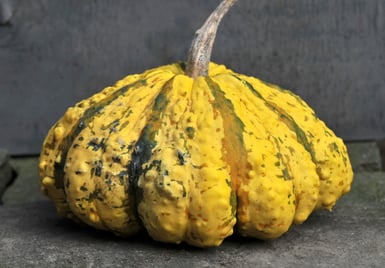
French Squash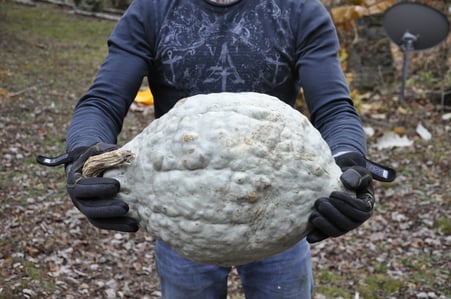 Blue Hubbard
Blue Hubbard
In the end, I don't mind all of the modern visual cues that now come with the mass market definition of 'harvest.' I can get past all of the Halloween inflatables, the fake cobwebs, even those gigantic bushel basket mums on front lawns. They may not be my definition of 'harvest,' but they might be yours. Autumn has always been a time of regeneration after a hot summer. It's a time of doing things together, as a community or as a family. We may not have to depend on our local wheat crop to survive the winter, but that still doesn't mean that we shouldn't appreciate it any less.


